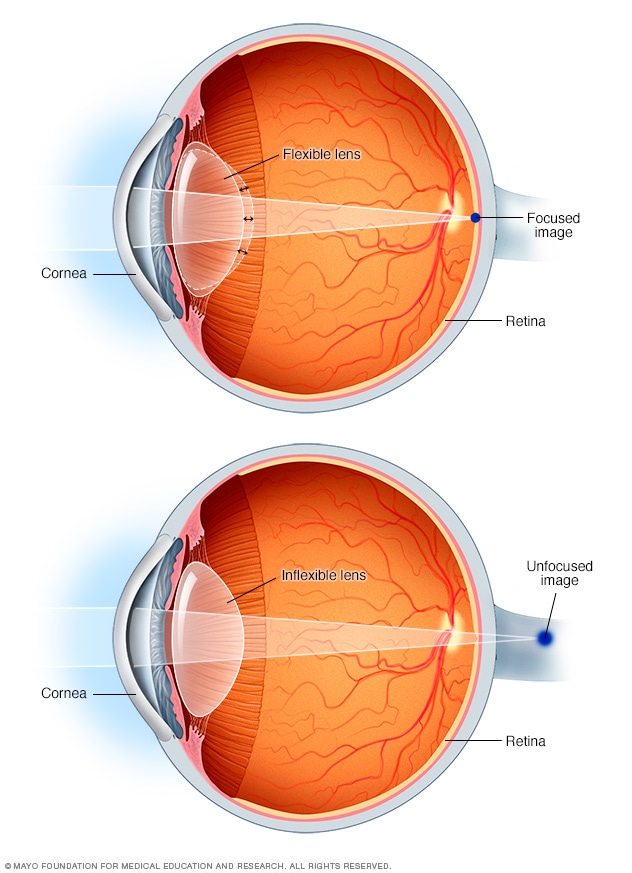First, the Good News...Can You Read This?
"[The drug, named pilocarpine, works through the use of the eye's natural ability to constrict the size of the pupil]."Reducing the pupil size expands the depth of field or the depth of focus, and that allows you to focus at different ranges naturally."Dr.George Waring, principal trial investigator
Close to half the American adult population suffers some loss of nearsightedness by middle age, as a result of a condition called presbyopia. This is a progressive eye condition and those who suffer from it, find it difficult to read small print. The condition can be corrected with prescription eyewear, contact lenses and in some instances surgical intervention. But the condition is permanent, no cure exists for it. Now, a newly developed eye drop has been approved by the U.S Food and Drug Administration.
It is the only drug that the FDA has approved in the treatment of presbyopia. Of those people suffering from presbyopia, 90 percent aged between 40 and 55 admit to feeling frustrated or irritated with this problem in their vision. The drug, Vuity, once dropped into the eyes becomes effective within fifteen minutes -- providing clearer vision that can last up to six to ten hours with a single drop, according to its manufacturer, Allegra.
The eye lenses can experience flexibility loss as people age, the result being it becomes more difficult to focus on objects up close. The drops, according to Allegra, work by adjusting the pH balance of the eye's tear film, which is a thin layer of fluid that covers the eye surface. A "statistically significant proportion" of the 750 participants in a study conducted across two clinical trials reported they could read three additional lines of text on a reading text chart, with the help of the drops.
And now the kicker: trials indicate the drug is less effective in low-light situations as well as for people older than 65. The side effects that can result from the use of the eye drops include headaches and red eyes, although none of the participants in the study reported any serious adverse effects. Cost? $80 monthly. Which can be weighed against the cost of a pair of eyeglasses, a one-time purchase, as a vision corrective.
As for those fortunate enough to have health insurance, it is unlikely that they'll get a break on this monthly cost, since eyeglass prescriptions remain a practical option and a far less expensive one at that, and this is what insurance will cover.
Labels: Eye Drops, Pharmaceuticals, Presbyopia, Vision Correction



0 Comments:
Post a Comment
<< Home